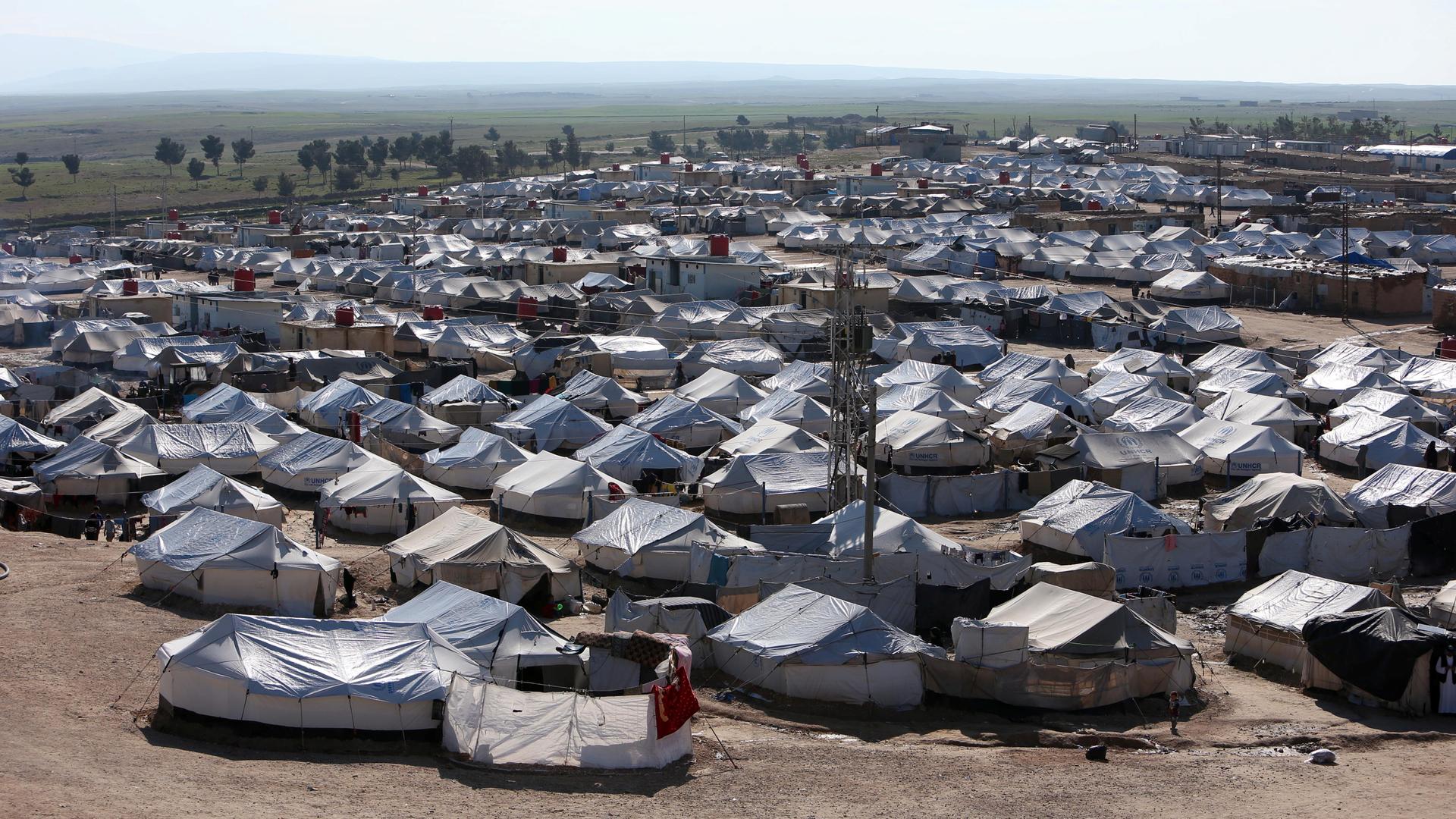The infamous Al Hol camp holds thousands of prisoners, many of whom may be loyal to Daesh.
On October 5, the YPG’s political umbrella, the so-called Syrian Democratic Council announced that 25,000 Syrian nationals in the famous Al Hol camp will be released within a general amnesty scheme for suspected Daesh terrorists.
The head of the illegitimate Syrian Democratic Council Elham Ahmed stated that they will be released based on vague tribal assurances that the prisoners won’t join Daesh or engage in criminal activities. Inmates in the Al Hol camp of non-Syrian origin remain as detainees.
This step follows the last release by the YPG, the Syrian branch of the PKK terrorist organization, where they released 6,000 people from the Al Hol camp of Syrian origin based on another alleged tribal sponsorship. The latest step could open the gates for the re-emergence of Daesh in Syria while the terror group has still a working operational base.
The Al Hol camp is officially recognised as an IDP camp, but most, if not, all of its residents are considered to be Daesh members or sympathisers. The camp hosts an estimated 73,000 including 42,000 foreigners – and is renowned for its precarious humanitarian situation.
Due to the lack of control by the YPG within the camp, Daesh members established de-facto self-control, offered teaching lessons, and used a prison-like environment to indoctrinate detainees, many of whom are children. The camp has been used by Daesh within the last one and a half years as recruitment ground for the next generation.
To be fair, a significant portion of the people in the Al Hol camp were not Daesh members but were imprisoned in the camp thanks to the YPG’s inability to differentiate between Daesh and non-Daesh Arabs.
However, as the American’s experience of Camp Bucca in Iraq proved, prisons and prison-like facilities can turn into recruitment centres for terror groups. In Camp Bucca, known Baath party members were radicalised and became embedded into the leadership of Daesh. A similar pattern has taken place in the Al Hol camp and the percentage of Daesh members has increased.
The current declared release of all Syrian citizens from the Al Hol camp could open the way for a new Daesh resurgence. Currently, Daesh still maintains an operational network in the YPG-held Arab-populated areas and in the desert and it conducts attacks from both areas.
The weak assurances from the YPG under tribal sponsorship that these individuals won’t join Daesh is absurd. Neither do these tribal leaders have the ability to control 31,0000 people nor can their sponsorship be seen as valid. Most of these tribal leaders themselves have reportedly cooperated with Daesh and have pledged alliance to Abu Bakr al Baghdadi.
The entire idea of releasing thousands of potential Daesh terrorists based on their nationality becomes even more complex considering that most of them have married other foreign Daesh members. Will the children of a German citizen and a Syrian citizen be considered as Syrian, or will they not be released?
The motives behind this decision is suspect. Only recently, the YPG rejected handing over 25 Daesh terrorists, German citizens, to German authorities. While in the past, many Western states were reluctant to repatriate their citizens despite the calls by the YPG, now when they are ready, it is the YPG who is rejecting repatriation. On the other hand, the very same YPG is releasing thousands of potential Deash terrorists.
The motives of the YPG
Since the US partnered with the YPG to fight Daesh, the terror group has found a path to legitimacy despite its terror activities and its obvious links to the PKK – which is recognised as a terror group by the US, the EU, NATO, and Turkey.
The YPG had a genuine interest in combat against Daesh and has seen it as a major opportunity, not only to legitimise itself but also to gain terrain, supplies, and financial aid. Looking to the past, one can assess that the YPG is one of, if not the biggest, winners from the fight against Daesh.
Having said this, the situation is different when it comes to eliminating Daesh. While the YPG has an interest in combating Daesh, it surely does not have an interest in eliminating Daesh. Currently, the YPG enjoys the benefits of portraying themselves as the bulwarks against Daesh and maintains Western support based solely on this assumption. If Daesh would be eliminated, the YPG would lose its currency.
The same Elham Ahmed from the Syrian Democratic Council who lobbied in Washington DC and through European capitals for the YPG and their fight against Daesh, is now releasing Daesh terrorists.
In short, the US-led international coalition against Daesh has entered a vicious cycle where its approach does guarantee the survival of Daesh. To come out of this cycle, the international coalition has two options, the first is to engage with Russia and hand over the country back to Assad whose policies have facilitated the emergence of Daesh in Syria, or to work together with Turkey who is not only a treaty ally in the NATO alliance but also a member of the international coalition.
Turkey’s formula for Syria has proven effective against Daesh as Daesh attacks in Syria are lowest in Turkish-protected areas.
Author: Omer Ozkizilcik
Omer Ozkizilcik is an analyst for the SETA Foundation and is an editor at Suriye Gundemi.
Source










Discussion about this post